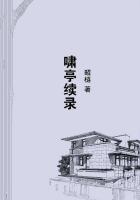THE TURNOVER OF CAPITAL
THE CIRCULATION OF SURPLUS-VALUEWe have just seen that a difference in the period of turnover causes a difference in the annual rate of surplus-value, even if the mass of the annually produced surplus-value is the same.
But there are furthermore necessarily differences in the capitalisation of surplus-value, in accumulation , and also in the quantity of surplus-value produced during the year, while the rate of surplus-value remains the same.
To begin with, we note that capital A (in the illustration of the preceding chapter) has a current periodical revenue, so that with the exception of the period of turnover inaugurating the business, it pays for its own consumption within the year out of its production of surplus-value, and need not cover it by advances out of its own funds. But the latter has to be done in the case of B. While it produces as much surplus-value in the same intervals of time as A, the surplus-value is not realised and therefore cannot be consumed either productively or individually. So far as individual consumption is concerned, the surplus-value is anticipated.
Funds for that purpose must be advanced.
One portion of the productive capital, which it is difficult to classify namely the additional capital required for the repair and maintenance of the fixed capital, is now likewise seen in a new light.
In the case of A this portion of capital is not advanced -- in full or for the greater part -- at the beginning of production. It need not be available or even in existence. It comes out of the business itself by a direct transformation of surplus-value into capital, i.e., by its direct employment as capital. A part of the surplus-value which is not only periodically generated but also realised during the year can defray the expenditures that must be incurred for repairs, etc. A portion of the capital needed to carry on the business on its original scale is thus produced in the course of business by the business itself by means of capitalising part of the surplus-value. This is impossible for capital B. The portion of capital in question must in his case form a part of the capital originally advanced. In both cases this portion will figure in the books of the capitalists as an advanced capital, which it really is, since according to our assumption it forms a part of the productive capital required for maintaining the business on a certain scale. But it makes all the difference in the world out of which funds it is advanced. In the case of B it is really a part of the capital to be originally advanced or held available. In the case of A on the other hand it is a part of the surplus-value used as capital.
This last case shows that not only the accumulated capital but also a portion of the originally advanced capital may simply be capitalised surplus-value.
As soon as the development of credit interferes, the relation between originally advanced capital and capitalised surplus-value becomes still more complicated. For instance from not having sufficient capital of his own at the very outset for this purpose, A borrows from banker Ca portion of the productive capital with which he starts in business or continues it during the year. Banker C lends him a sum of money which consists only of surplus-value deposited with the banker by capitalists D, E, F, etc. As far as A is concerned there is as yet no question of accumulated capital. But with regard to D, E, F, etc., A is, in fact, nothing but an agent capitalising surplus-value appropriated by them.
We have seen (Buch I, Kap. XXII) [English edition: Ch. XXIV. -- Ed .] that accumulation, the conversion of surplus-value into capital, is essentially a process of reproduction on a progressively increasing scale, whether this expansion is expressed extensively in the form of an addition of new factories to the old, or intensively by the enlargement of the existing scale of operation.
The expansion of the scale of production may proceed in small portions, a part of the surplus-value being used for improvements which either simply increase the productive power of the labour employed or permit at the same time of its more intensive exploitation. Or, where the working-day is not legally limited, an additional expenditure of circulating capital (in materials of production and wages) suffices to enhance the production scale without an expansion of the fixed capital, whose daily time of employment is thus merely lengthened, while its period of turnover is correspondingly shortened. Or the capitalised surplus-value may, under favourable market conditions, permit of speculation in raw materials, operations for which the capital originally advanced would not have been sufficient, etc.
However it is clear that in cases where the greater number of periods of turnover brings with it a more frequent realisation of surplus-value during the year, there will be periods in which there can be neither a prolongation of the working-day nor an introduction of improvements in details; on the other hand a proportional expansion of the whole business, partly by expanding its entire plant, the buildings for example, partly by enlarging the cultivated areas in agriculture, is possible only within certain more or less narrow limits and, besides, requires such a volume of additional capital as can be supplied only by several years' accumulation of surplus-value.
Along with the real accumulation or conversion of surplus-value into productive capital (and a corresponding reproduction on an extended scale), there, is then, an accumulation of money, a raking together of a portion of the surplus-value in the form of latent money-capital, which is not intended to function as additional active capital until later, when it swells to a certain volume.















